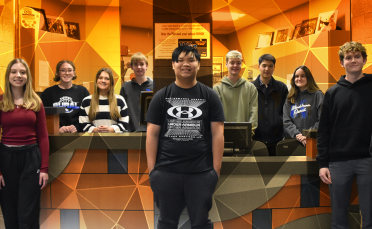Career Quizzes in Action

Here at HirePaths, we believe that parents who intentionally discuss and explore career options with their children raise kids who think deeply about what they want to do with their own lives — and help them begin setting and achieving career goals at an early age. As a content marketer with the HirePaths campaign, I’m familiar with this call to action. As the parent of a 12-year-old son, I want to make sure I’m doing all I can to answer it.
We recently learned about two free interactive quizzes he could take to learn more about what he may enjoy doing for a living: the U.S. Department of Labor’s CareerOneStop Interest Assessment and My Next Move Interest Profiler. Curious, we sat down on a Friday afternoon and took both.
About Sam
Like many Kansans, my son Sam is fascinated with weather and forecasting, especially during tornado season. He likes to examine doppler radar images for hook echoes and keeps a vigilant eye on the local news channels when our area is under a severe weather watch, ready to herd the family into our shelter if necessary. Sam wants to be a meteorologist when he grows up, and though we’ve discussed the educational requirements and common duties for this career, I still had questions: What other considerations should I take into account as his parent? Is this the correct path for him, based on his natural abilities and aptitudes? What should I be doing to help prepare him? And would these career quizzes even pair him with meteorology in the first place?
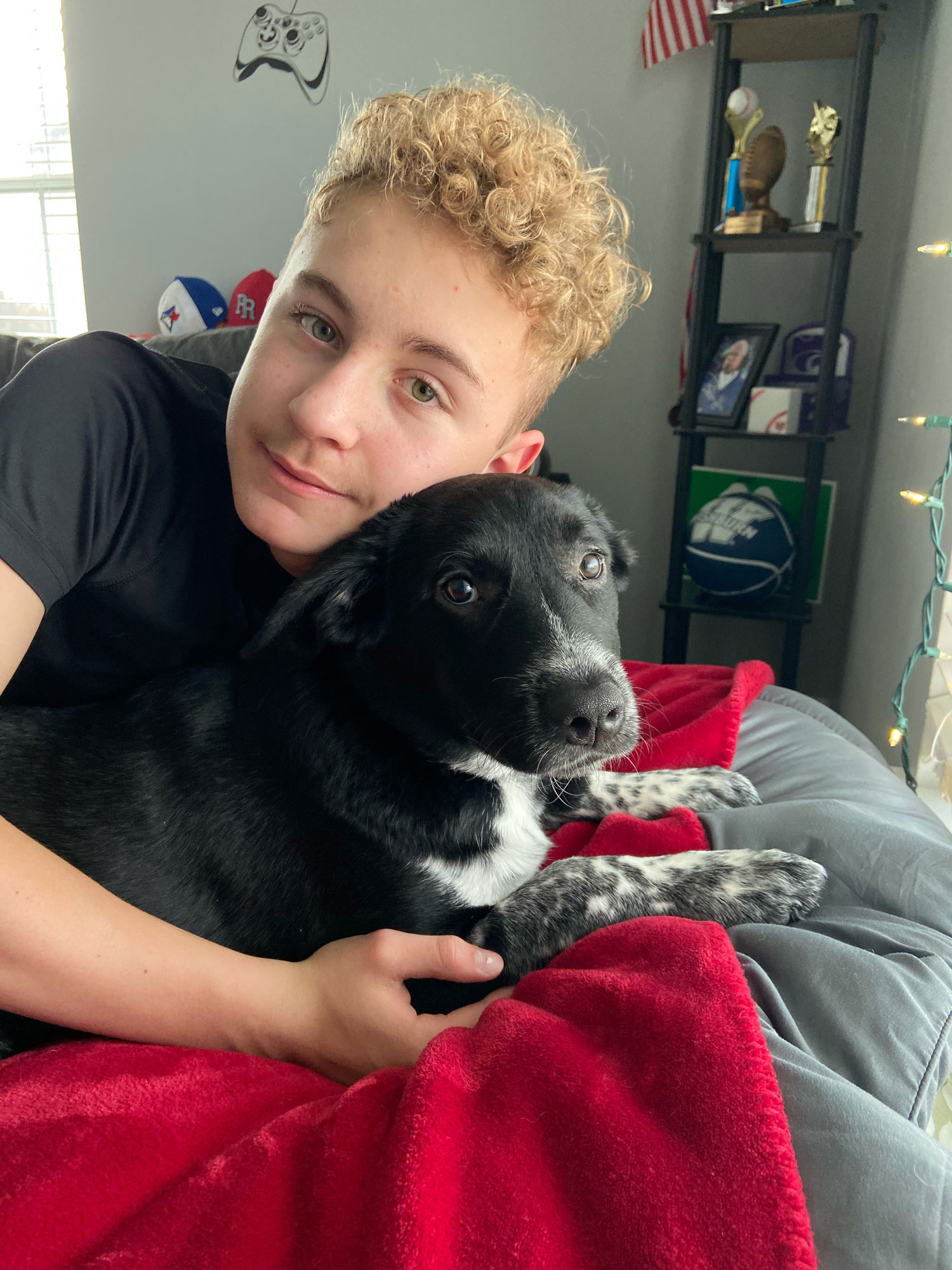
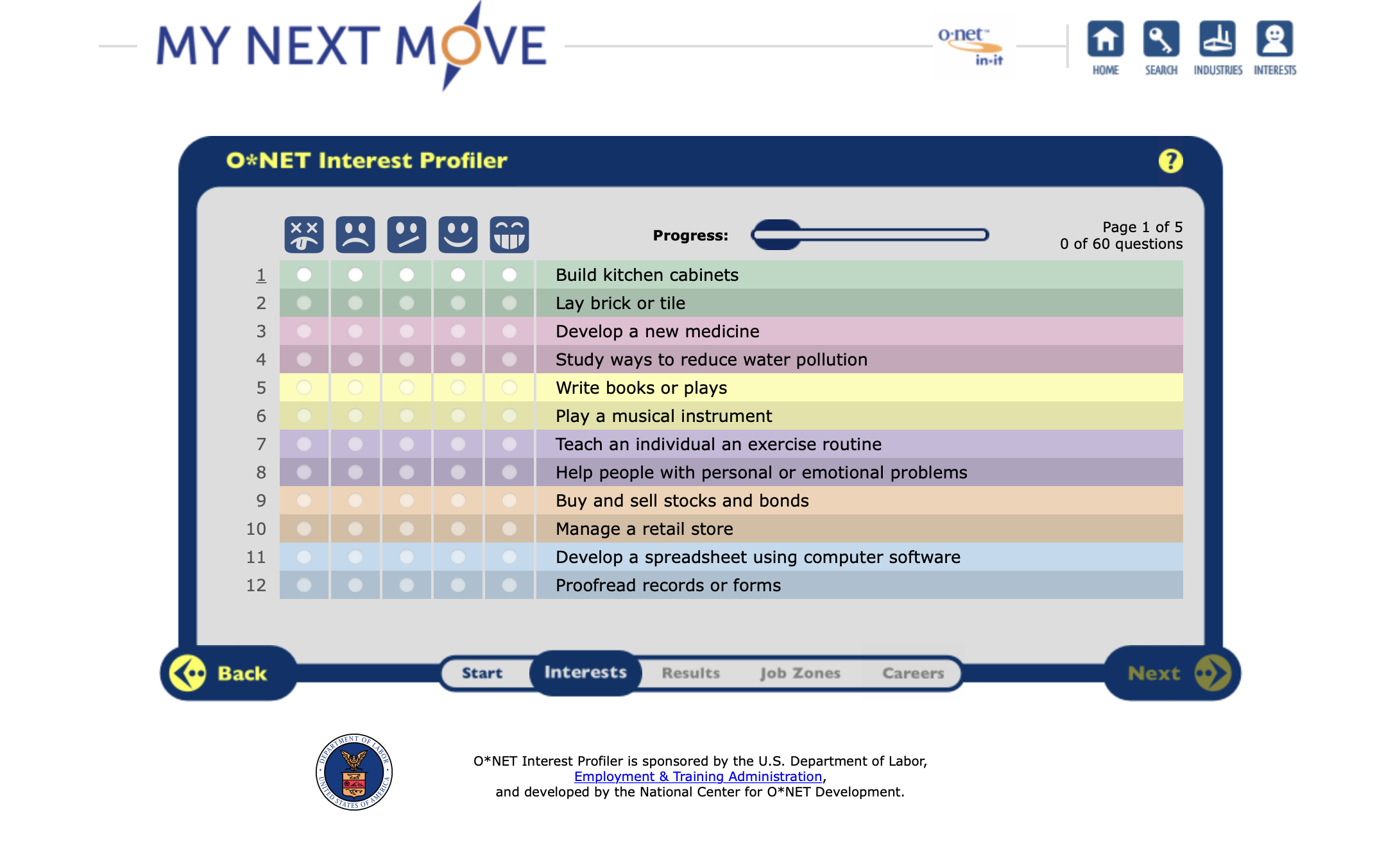
What’s the earning potential for what I want to do?
What level of education is required?
What’s the outlook for my chosen field — will jobs be available when I’m ready to enter the workforce?
The tests differ in the number of questions and the level of detail in the results. The chart below compares the features of the two quizzes.
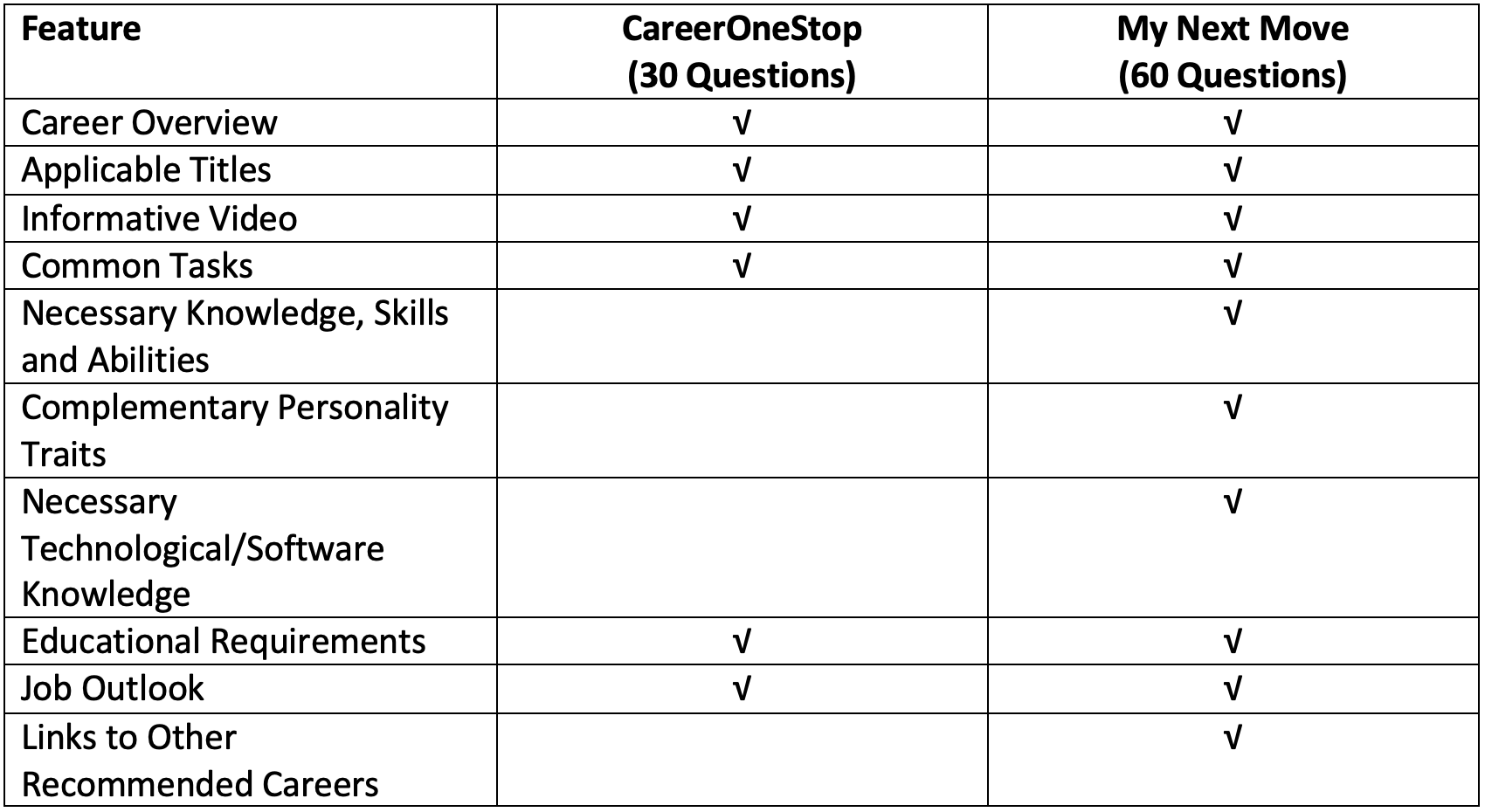
Which Did We Like Best?
We liked both tests, but My Next Move gathered more information from Sam and included more thorough, visually appealing results. These results first give you your top interest categories with descriptions. You then choose a job zone (the amount of training or education you’re willing to obtain for your desired profession), and voila! A list of careers appears.
Sam decided he’s interested in getting a bachelor’s degree. He found that at the top of his results, listed as a “great fit,” was atmospheric and space scientist. DING DING DING — meteorologist!
Sam’s Top 5
- Atmospheric and space scientists
- Health informatics specialists
- Occupational health and safety specialists
- Computer programmers
- Environmental scientists and specialists
The results for atmospheric and space scientists included a short description and video about the profession, along with the knowledge (math and science, arts and humanities), skills (reading, problem solving) and abilities (math, visual understanding) he’d need to bring to the table. They even went so far as to recommend certain personality traits that mix with meteorology, as well as the types of software he’d need to learn.
We also learned that Kansas has an excellent job outlook with a bright job opportunities forecast (haha) for meteorologists. He searched by ZIP code to find that, in our area, meteorologists can make between $40,490 and $113,670 annually. The state average is $91,240, compared to a slightly higher average ($99,740) nationwide. (“Is that good, Mom?”)
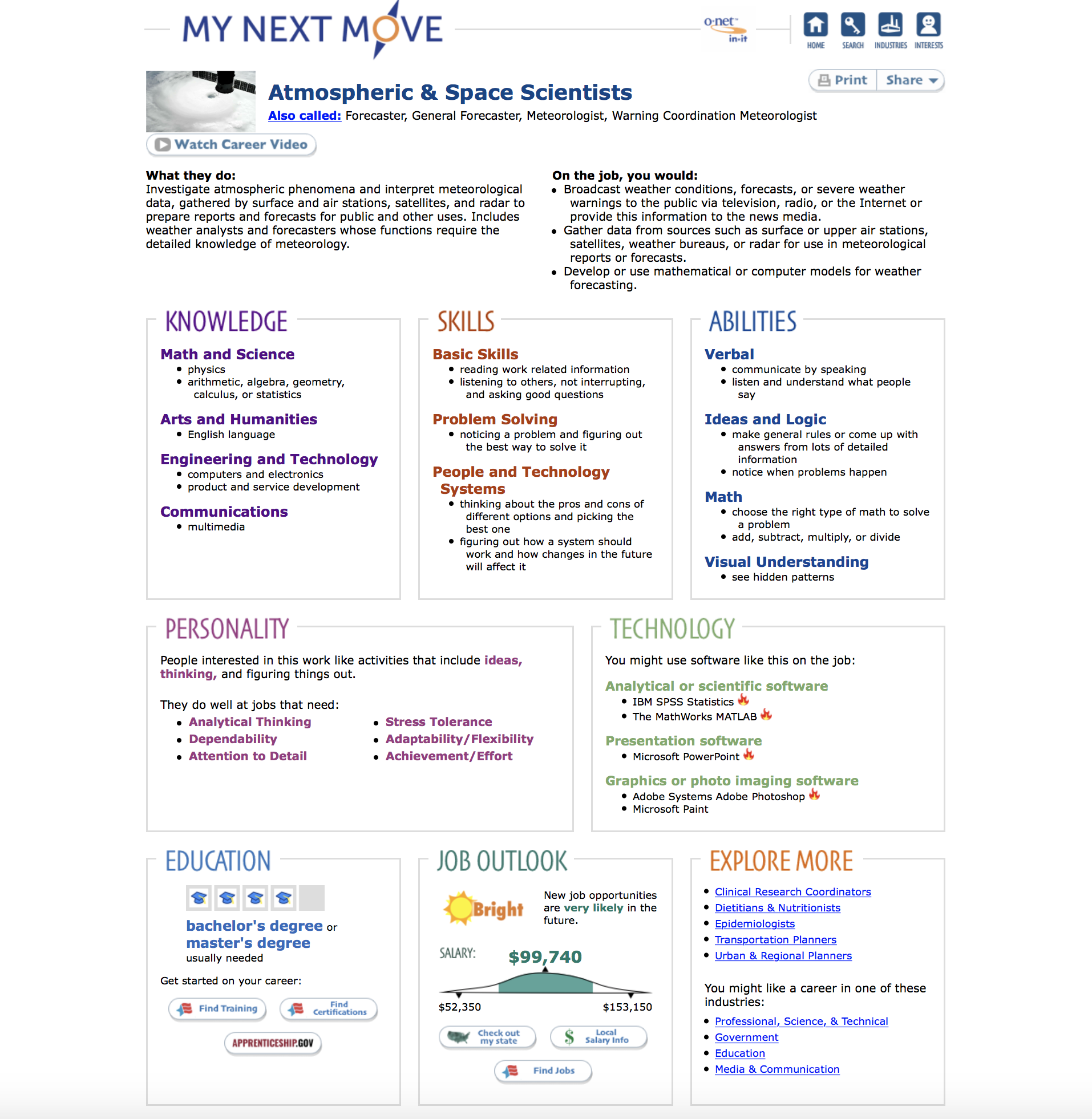
Sam reported that he also gained a little perspective through this activity. He said he was surprised to learn that he has a creative side and may also enjoy pursuing a career in the arts. This information didn’t sway him in his quest to study the weather, but it definitely broadened his horizons and understanding of his own strengths. The tests also provided an incentive to study harder. He now knows that he’d better do well in math — despite his dislike of the subject — if he truly wants to become a meteorologist.
It’s good to know Sam has solid options after high school, no matter what path he chooses following graduation. If you have a child who’s interested in their future career, I can’t recommend these tests highly enough. They’re the perfect opportunity to get the conversation started.
Alison Rogers is a content marketer at New Boston Creative Group LLC, as well the parent of a very busy preteen son. If you would like to know more about CareerOneStop, My Next Move or about HirePaths in general, feel free to email her at [email protected].



